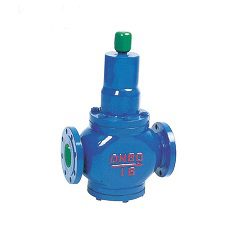Sustainable Stainless Steel Seamless Pipe for Eco-Friendly Projects

In a world striving to minimize its environmental impact, sustainable solutions are gaining momentum across various industries. From construction to infrastructure development, eco-friendly practices are embracing to create a greener and more sustainable future. One crucial aspect of these efforts lies in the materials we choose, and in recent times, stainless steel seamless pipes have emerged as a frontrunner for eco-friendly projects.
Understand Stainless Steel Seamless Pipe:
Stainless steel is an alloy compose primarily of iron, with the addition of chromium, nickel, and other elements, which enhance its corrosion resistance, strength, and durability. Unlike welded pipes that are constructed by joining separate pieces, seamless pipes are manufactured through a single continuous process, eliminating the need for welding.
The Environmental Impact of Traditional Piping:
Before delving into the benefits of stainless steel seamless pipes, it’s essential to grasp the environmental issues associated with traditional piping materials. Historically, materials like carbon steel and plastic have been widely using for various applications. Carbon steel, while strong and cost-effective, is highly susceptible to corrosion and requires regular maintenance. This constant need for repairs leads to increased material consumption and can generate significant waste over time.
Plastic pipes, on the other hand, are known for their corrosion resistance and low cost. However, they often contain harmful chemicals and are not biodegradable, contributing to plastic pollution in oceans and landfills.
The Sustainability Advantages of Stainless Steel Seamless Pipe:
- Longevity and Durability: Stainless steel is known for its exceptional durability, meaning that once install, stainless steel seamless pipes are likely to last a lifetime with minimal maintenance. This longevity reduces the frequency of replacements and, in turn, reduces material waste.
- Corrosion Resistance: Stainless steel’s inherent resistance to corrosion makes it suitable for various environments, including those with exposure to moisture and chemicals. As a result, the pipes remain intact for extended periods without rusting or deteriorating, ensuring that they do not become a part of the waste stream prematurely.
- Recyclability: Stainless steel is among the most recyclable materials on the planet. At the end of its long life cycle, stainless steel seamless pipes can be recycle and repurpose, contributing to a circular economy and conserving valuable resources.
- Reduced Energy Consumption: The manufacturing process of stainless steel seamless pipe consumes less energy compared to other materials, leading to lower carbon emissions and a smaller environmental footprint.
- Chemical-Free and Non-Toxic: Unlike some plastic pipes that may contain harmful chemicals, stainless steel is non-toxic and doesn’t leach any hazardous substances into the water or soil. This makes it a safe and eco-friendly option for various applications, including those involving drinking water.
- High Strength-to-Weight Ratio: Stainless steel offers an excellent strength-to-weight ratio, meaning that it requires less material to achieve the same structural integrity as other materials. This attribute reduces the overall material demand and contributes to resource conservation.
Applications of Stainless Steel Seamless Pipes in Eco-Friendly Projects:
Stainless steel seamless pipes find versatile applications in eco-friendly projects, including but not limited to:
- Water Distribution Systems: The corrosion-resistant and non-toxic nature of stainless steel makes it an ideal choice for water supply networks, ensuring clean and safe water for communities.
- Renewable Energy Infrastructure: From geothermal to solar energy projects, stainless steel seamless pipes play a vital role in carrying fluids and gases efficiently, contributing to the expansion of sustainable energy sources.
- Green Building Constructions: In eco-friendly and energy-efficient building designs, stainless steel seamless pipes are for HVAC systems, ensuring longevity, efficiency, and reduced maintenance requirements.
- Wastewater Treatment: The durability and corrosion resistance of stainless steel makes it well-suited for conveying and treating wastewater in environmentally responsible ways.
Conclusion:
As the world continues its pursuit of sustainable practices, embracing materials like stainless steel seamless pipes is a significant step towards building eco-friendly projects. With its durability, recyclability, and low environmental impact, stainless steel is proving to be an essential ally in creating a greener and more sustainable future for generations to come. By choosing sustainable materials, we can contribute to a positive impact on the environment and take part in shaping a world that prioritizes eco-friendliness and responsible resource management.




